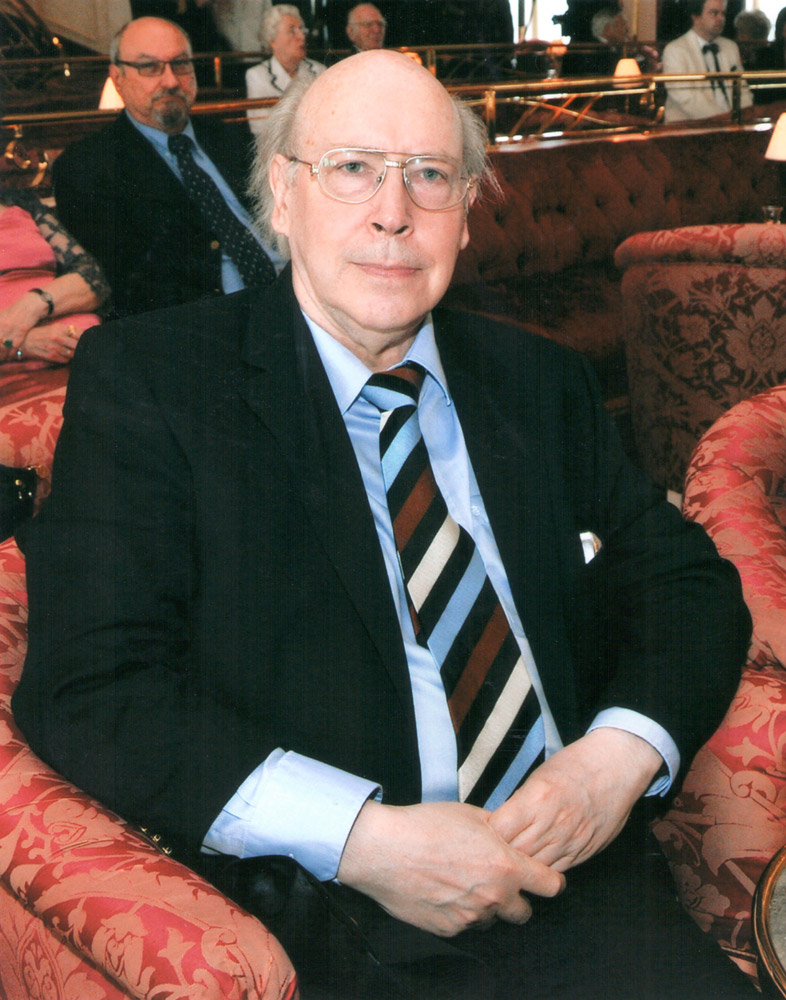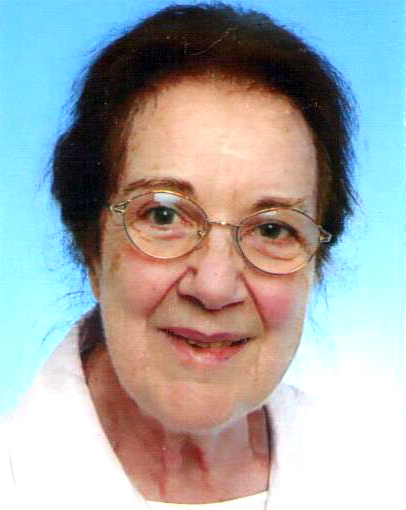|
Siegmund Helms
Siegmund Helms (born 14 December 1938) is a German musicologist and music educator. Life Born in Nordhorn, Helms studied school music (including philosophy, psychology and education) and geography as well as musicology (including ethnomusicology) in Hanover, Marburg and Berlin from 1958. In 1967, his doctorate was awarded the a PhD degree from the Free University of Berlin with a dissertation on '' Die Melodiebildung in den Liedern von J. Brahms und ihr Verhältnis zu Volksliedern und volkstümlichen Weisen''. He passed the first and second Staatsexamen in 1964 in Berlin and 1968 in Kassel. Afterwards he worked as a teacher in Göttingen. From 1971 to 1974, Helms was a lecturer in music education at the Pädagogische Hochschule Bayreuth and from 1974 to 1977, a professor of music education at the Musikhochschule Frankfurt. Subsequently, he took over a professorship for music education at the Musikhochschule Köln until 2002, where he was appointed, among other things, head o ... [...More Info...] [...Related Items...] OR: [Wikipedia] [Google] [Baidu] |
Musicologist
Musicology (from Greek μουσική ''mousikē'' 'music' and -λογια ''-logia'', 'domain of study') is the scholarly analysis and research-based study of music. Musicology departments traditionally belong to the humanities, although some music research is scientific in focus (psychological, sociological, acoustical, neurological, computational). Some geographers and anthropologists have an interest in musicology so the social sciences also have an academic interest. A scholar who participates in musical research is a musicologist. Musicology traditionally is divided in three main branches: historical musicology, systematic musicology and ethnomusicology. Historical musicologists mostly study the history of the western classical music tradition, though the study of music history need not be limited to that. Ethnomusicologists draw from anthropology (particularly field research) to understand how and why people make music. Systematic musicology includes music theory, aesthe ... [...More Info...] [...Related Items...] OR: [Wikipedia] [Google] [Baidu] |
Music Education
Music education is a field of practice in which educators are trained for careers as elementary or secondary music teachers, school or music conservatory ensemble directors. Music education is also a research area in which scholars do original research on ways of teaching and learning music. Music education scholars publish their findings in peer-reviewed journals, and teach undergraduate and graduate education students at university education or music schools, who are training to become music teachers. Music education touches on all learning domains, including the psychomotor domain (the development of skills), the cognitive domain (the acquisition of knowledge), and, in particular and the affective domain (the learner's willingness to receive, internalize, and share what is learned), including music appreciation and sensitivity. Many music education curriculums incorporate the usage of mathematical skills as well fluid usage and understanding of a secondary language or cult ... [...More Info...] [...Related Items...] OR: [Wikipedia] [Google] [Baidu] |
1938 Births
Events January * January 1 ** The Constitution of Estonia#Third Constitution (de facto 1938–1940, de jure 1938–1992), new constitution of Estonia enters into force, which many consider to be the ending of the Era of Silence and the authoritarian regime. ** state-owned enterprise, State-owned railway networks are created by merger, in France (SNCF) and the Netherlands (Nederlandse Spoorwegen – NS). * January 20 – King Farouk of Egypt marries Safinaz Zulficar, who becomes Farida of Egypt, Queen Farida, in Cairo. * January 27 – The Honeymoon Bridge (Niagara Falls), Honeymoon Bridge at Niagara Falls, New York, collapses as a result of an ice jam. February * February 4 ** Adolf Hitler abolishes the War Ministry and creates the Oberkommando der Wehrmacht (High Command of the Armed Forces), giving him direct control of the German military. In addition, he dismisses political and military leaders considered unsympathetic to his philosophy or policies. Gene ... [...More Info...] [...Related Items...] OR: [Wikipedia] [Google] [Baidu] |
Academic Staff Of The Frankfurt University Of Music And Performing Arts
An academy ( Attic Greek: Ἀκαδήμεια; Koine Greek Ἀκαδημία) is an institution of secondary or tertiary higher learning (and generally also research or honorary membership). The name traces back to Plato's school of philosophy, founded approximately 385 BC at Akademia, a sanctuary of Athena, the goddess of wisdom and skill, north of Athens, Greece. Etymology The word comes from the ''Academy'' in ancient Greece, which derives from the Athenian hero, '' Akademos''. Outside the city walls of Athens, the gymnasium was made famous by Plato as a center of learning. The sacred space, dedicated to the goddess of wisdom, Athena, had formerly been an olive grove, hence the expression "the groves of Academe". In these gardens, the philosopher Plato conversed with followers. Plato developed his sessions into a method of teaching philosophy and in 387 BC, established what is known today as the Old Academy. By extension, ''academia'' has come to mean the accumulatio ... [...More Info...] [...Related Items...] OR: [Wikipedia] [Google] [Baidu] |
Academic Staff Of The Hochschule Für Musik Und Tanz Köln
An academy ( Attic Greek: Ἀκαδήμεια; Koine Greek Ἀκαδημία) is an institution of secondary or tertiary higher learning (and generally also research or honorary membership). The name traces back to Plato's school of philosophy, founded approximately 385 BC at Akademia, a sanctuary of Athena, the goddess of wisdom and skill, north of Athens, Greece. Etymology The word comes from the ''Academy'' in ancient Greece, which derives from the Athenian hero, '' Akademos''. Outside the city walls of Athens, the gymnasium was made famous by Plato as a center of learning. The sacred space, dedicated to the goddess of wisdom, Athena, had formerly been an olive grove, hence the expression "the groves of Academe". In these gardens, the philosopher Plato conversed with followers. Plato developed his sessions into a method of teaching philosophy and in 387 BC, established what is known today as the Old Academy. By extension, ''academia'' has come to mean the accumulatio ... [...More Info...] [...Related Items...] OR: [Wikipedia] [Google] [Baidu] |
German Music Educators
German(s) may refer to: * Germany (of or related to) **Germania (historical use) * Germans, citizens of Germany, people of German ancestry, or native speakers of the German language ** For citizens of Germany, see also German nationality law **Germanic peoples (Roman times) * German language **any of the Germanic languages * German cuisine, traditional foods of Germany People * German (given name) * German (surname) * Germán, a Spanish name Places * German (parish), Isle of Man * German, Albania, or Gërmej * German, Bulgaria * German, Iran * German, North Macedonia * German, New York, U.S. * Agios Germanos, Greece Other uses * German (mythology), a South Slavic mythological being * Germans (band), a Canadian rock band * "German" (song), a 2019 song by No Money Enterprise * ''The German'', a 2008 short film * "The Germans", an episode of ''Fawlty Towers'' * ''The German'', a nickname for Congolese rebel André Kisase Ngandu See also * Germanic (other) * Germa ... [...More Info...] [...Related Items...] OR: [Wikipedia] [Google] [Baidu] |
Breitkopf & Härtel
Breitkopf & Härtel is the world's oldest music publishing house. The firm was founded in 1719 in Leipzig by Bernhard Christoph Breitkopf. The catalogue currently contains over 1,000 composers, 8,000 works and 15,000 music editions or books on music. The name "Härtel" was added when Gottfried Christoph Härtel took over the company in 1795. In 1807, Härtel began to manufacture pianos, an endeavour which lasted until 1870. The Breitkopf pianos were highly esteemed in the 19th century by pianists like Franz Liszt and Clara Schumann. In the 19th century the company was for many years the publisher of the ''Allgemeine musikalische Zeitung'', an influential music journal. The company has consistently supported contemporary composers and had close editorial collaboration with Beethoven, Haydn, Mendelssohn, Schumann, Chopin, Liszt, Wagner and Brahms. In the 19th century they also published the first "complete works" editions of various composers, for instance Bach (the Bach-Gesells ... [...More Info...] [...Related Items...] OR: [Wikipedia] [Google] [Baidu] |
Gustav Bosse
Gustav Bosse (6 February 1884 – 27 March 1943) was a German music publisher. Life Born in Vienenburg/Harz as son of the sugar factory director and music publisher Fritz Bosse, he founded the for music books in Regensburg in 1912. Already the programme of the publication series ''Deutsche Musikbücherei'' showed a strictly anti-modernist, German-national orientation. Since 1919 he had a friendship with the book illustrator Hans Wildermann who illustrated many of his printed products. He published the ''Neue Zeitschrift für Musik'' in 1929 until his death in 1943. In 1939 he was appointed honorary senator of the University of Cologne because of his merits for the Anton Bruckner movement. Since May 1, 1933, Bosse had been a member of the National Socialist German Workers' Party, NSDAP (membership number 2.530.992). He was also leader of the artificial circle of the NS-community Kraft durch Freude. On 19 March 1938 Bosse gave the following autobiographical information in response ... [...More Info...] [...Related Items...] OR: [Wikipedia] [Google] [Baidu] |
Marianne Helms
Marianne Helms, real name Marianne Henze (born 3 July 1936) is a German musicologist. Life Born in Berlin, Helms studied musicology (historical musicology and ethnomusicology) and medieval and modern history at the Free University of Berlin from 1955, where she received her doctorate in 1964 with a dissertation on the masses of Johannes Ockeghem. From 1965 to 1967, she was a research assistant at the Musicological Institute there. From autumn 1967 to 1978, she worked as a research assistant at the Johann Sebastian Bach Institute in Göttingen and in 1979 at the Beethoven Archive in Bonn. From 1980, she was a member of the Joseph Haydn Institute in Cologne. She worked there as a research assistant and archivist, most recently (from July 1997 to the end of 1998) as scientific director. In retirement (since 1999), she continued to work as an editor on volumes of the Complete Haydn Edition. She has been married since 1966 to the musicologist and music educator Siegmund Helms (mo ... [...More Info...] [...Related Items...] OR: [Wikipedia] [Google] [Baidu] |
Hochschule Für Musik Und Tanz Köln
The Cologne University of Music ( is a music college in Cologne, Germany. Founded in 1850, it is Europe's largest academy of music. History The academy was founded by Ferdinand Hiller in 1850 as ''Conservatorium der Musik in Coeln''. In 1895 German violinist Willy Hess was appointed as principal professor of violin at the Conservatorium der Musik in Coeln. In 1925 it became known as the ''Staatliche Hochschule für Musik'' having introduced new study and exam regulations. In 1972 it incorporated previously independent conservatories in Aachen and Wuppertal, forming the ''Staatliche Hochschule für Musik Rheinland'' which in 1987 changed its name to ''Hochschule für Musik Köln'' or the Cologne University of Music. Alumni * Theo Altmeyer * Jürg Baur * Heribert Beissel * Elena Braslavsky * Jan Chiapusso * Michael Denhoff * Allard de Ridder * Sir Vivian Dunn * Juan Carlos Echeverry Bernal * Mojca Erdmann * Henry Fairs * Hedwig Fassbender * Achim Fiedler * Christopher Fif ... [...More Info...] [...Related Items...] OR: [Wikipedia] [Google] [Baidu] |
Musikhochschule Köln
A music school is an educational institution specialized in the study, training, and research of music. Such an institution can also be known as a school of music, music academy, music faculty, college of music, music department (of a larger institution), conservatory, conservatorium or conservatoire ( , ). Instruction consists of training in the performance of musical instruments, singing, musical composition, conducting, musicianship, as well as academic and research fields such as musicology, music history and music theory. Music instruction can be provided within the compulsory general education system, or within specialized children's music schools such as the Purcell School. Elementary-school children can access music instruction also in after-school institutions such as music academies or music schools. In Venezuela El Sistema of youth orchestras provides free after-school instrumental instruction through music schools called ''núcleos''. The term "music school" can a ... [...More Info...] [...Related Items...] OR: [Wikipedia] [Google] [Baidu] |








